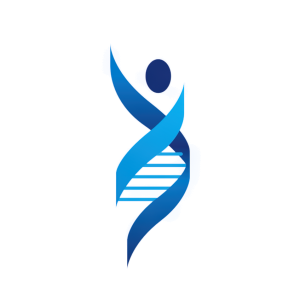Salarius Pharmaceuticals Issued U.S. Patent for Next-Generation Targeted Protein Degraders
Expands IP portfolio with composition-of-matter protection into 2039 for novel molecular glues
Protein degrader portfolio now includes 17 issued patents across six patent families
HOUSTON, Jan. 16, 2024 (GLOBE NEWSWIRE) -- Salarius Pharmaceuticals, Inc. (NASDAQ: SLRX), announces that the U.S. Patent and Trademark Office (USPTO) has issued U.S. Patent No. 11,773,080, titled “Deuterium-enriched isoindolinonyl-azepanediones and related compounds and methods of treating medical disorders using same.” This patent covers the composition of matter for novel molecular glue degraders and expires in mid-2039.
As reported on August 8, 2023, Salarius retained Canaccord Genuity, LLC to lead a comprehensive review of strategic alternatives focusing on maximizing shareholder value. While these efforts are ongoing, the company continues to support its current programs, as appropriate.
Targeted protein degradation (TPD) utilizes the body’s own degradation system to promote the selective elimination of disease-causing proteins. This newly issued patent expands and extends protection of Salarius’ TPD pipeline, which is led by SP-3164, a molecular glue that is cleared by the U.S. Food and Drug Administration to begin a Phase 1 clinical trial.
David Arthur, President and CEO of Salarius, said, “We are delighted to continue building our TPD portfolio using our deuterium-enabled chiral switching (DECS) platform to identify and develop new therapeutics. The granting of this patent, the 17th issued to Salarius in TPDs across six patent families, demonstrates the ability of the DECS platform to develop novel protein degraders.”
Salarius is currently evaluating strategic options to advance the development of the TPD portfolio with third parties.
About Salarius Pharmaceuticals
Salarius Pharmaceuticals, Inc. is a clinical-stage biopharmaceutical company developing therapies for patients with cancer in need of new treatment options. Salarius’ product portfolio includes seclidemstat, Salarius’ lead candidate, a potential treatment for pediatric cancers, sarcomas and hematologic or blood cancers, and SP-3164, an oral small molecule protein degrader for the treatment of non-Hodgkin’s lymphoma. Salarius has received financial support from the National Pediatric Cancer Foundation to advance the Ewing sarcoma program and was a recipient of a Product Development Award from the Cancer Prevention and Research Institute of Texas (CPRIT). For more information, please visit salariuspharma.com or follow Salarius on Twitter and LinkedIn.
Forward-Looking Statements
This press release contains “forward-looking statements” within the meaning of the Private Securities Litigation Reform Act of 1995. All statements, other than statements of historical facts, included in this press release are forward-looking statements. These forward-looking statements may be identified by terms such as “will,” “believe,” “developing,” “expect,” “may,” “progress,” “potential,” “could,” “look forward,” “encouraging,” “might,” “should,” and similar terms or expressions or the negative thereof. Examples of such statements include, but are not limited to, statements relating to the following: Salarius’ expectations regarding the exploration of strategic alternatives, opportunities to extend Salarius’ resources, the future of the Company’s operations and product candidates; the future of the Company’s preclinical studies and clinical trials and development activities; the advantages of protein degraders including the value of SP-3164 as a cancer treatment; the value of seclidemstat as a treatment for Ewing sarcoma, Ewing-related sarcomas, and other cancers and its ability to improve the life of patients. Salarius may not actually achieve the plans, carry out the intentions or meet the expectations or objectives disclosed in these forward-looking statements. You should not place undue reliance on these forward-looking statements. These statements are subject to risks and uncertainties which could cause actual results and performance to differ materially from those discussed in the forward-looking statements. These risks and uncertainties include, but are not limited to, the following: the risk that exploration of strategic alternatives may not result in any definitive transaction or enhance stockholder value and may create a distraction or uncertainty that may adversely affect our operating results, business, or investor perceptions; expectations regarding future costs and expenses; our product candidates being in early stages of development; the uncertainty about the paths of our programs and our ability to evaluate and identify a path forward for those programs, particularly given the constraints we have as a small company with limited financial, personnel and other operating resources (including with respect to the allocation of our limited capital and the sufficiency of our capital in the near term for any path we do select); Salarius’ ability to continue as a going concern; the sufficiency of Salarius’ capital resources; availability of suitable third parties with which to conduct contemplated strategic transactions; whether the Company will be able to pursue a strategic transaction, or whether any transaction, if pursued, will be completed successfully and on attractive terms or at all; whether our cash resources will be sufficient to fund the Company’s foreseeable and unforeseeable operating expenses and capital requirements; changes in the Company’s operating plans that may impact its cash expenditures; the uncertainties inherent in research and development, future clinical data and analysis; the risks associated with reductions in workforce, including reduced morale and attrition of additional employees necessary for the strategic reprioritization; future clinical trial results and the impact of such results on Salarius; that the results of studies and clinical trials may not be predictive of future clinical trial results; the competitive landscape and other industry-related risks; and other risks described in Salarius’ filings with the Securities and Exchange Commission, including its Annual Report on Form 10-K for the fiscal year ended December 31, 2022, as revised or supplemented by its Quarterly Reports on Form 10-Q and other documents filed with the SEC. The forward-looking statements contained in this press release speak only as of the date of this press release and are based on management’s assumptions and estimates as of such date. Salarius disclaims any intent or obligation to update these forward-looking statements to reflect events or circumstances that exist after the date on which they were made.
Contact:
LHA Investor Relations
Kim Sutton Golodetz
kgolodetz@lhai.com
212-838-3777







